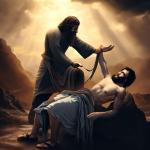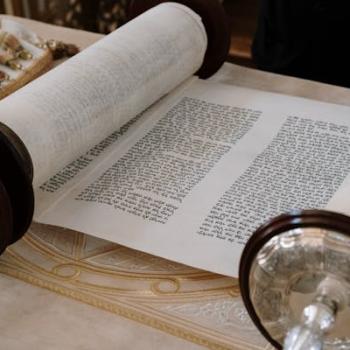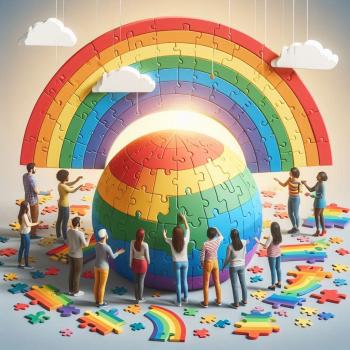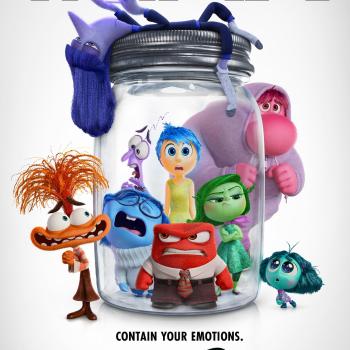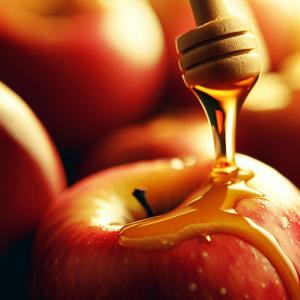
Rosh Hashanah is the beginning of the Jewish New Year. This year is Year 5784. We celebrate Rosh Hashanah on the date G-d created Adam and Eve. During this holiday we cast off that which no longer serves us, and we prepare for a good year ahead.
Rosh Hashanah: The Day of Judgement
A prayer for Rosh Hashanah reminds us that on this day everyone passes before G-d. It is then decided who shall live, who shall die, who shall be impoverished, and who should be enriched. Therefore, on this day we humble ourselves before G-d and ask for continued blessings and a year of peace. We accept G-d’s rule over the Earth, our people, and our lives anew. On this day we renew our covenant with our creator. We remember that the creator is our G-d and we are his people.
Starting Anew
As we blow the Shofer and light the candles, let us decide to do better this year. Let us bring in light and cast off sin. Let us remember that Rosh Hashanah is a day of renewal. On Rosh Hashanah, we have a chance to start over and renew our covenant with the Creator. May we forgive ourselves as G-d forgives us, and may we walk into the new year determined to not commit the same sins again. May we strive toward perfection, even if the destination is unreachable.
The Sweetness of Rosh Hashanah
As we eat the sweet bread and apples dipped in honey, let us thank G-d for all the blessings of the past year and ask for a sweet year to come. Let us remember to savor every moment of the coming year. May we find the sweetness in life, ourselves, and others. Sometimes, we get stuck on the bitter. We focus on life’s pains, other’s mistakes, and our own failures. Yet, this is a recipe for depression. Instead, this year may we remember the sweet honey in every moment and interaction.
Cleansing
As we stand near the flowing water and cast our sins in to be washed away, may we let our souls be washed clean. Let us remember to flow with the current of life, rather than fight it, this year. May we remember to cast off those things that are harmful to us and let them be swept away from us by the rushing waters of G-d’s peace. Holding onto things that G-d has told us we need to let go of, causes pain and robs us of our joy. We must surrender to and trust G-d to replace anything lost with that which is better.
Forgiveness
As we look toward Yom Kippur, let us forgive ourselves and others for the trespasses of the last year. Let us start anew as a people, a community, and in our personal lives. May we let the past be the past and build a better tomorrow. As G-d forgives us, let us forgive our neighbors. Forgiveness is a gift for both the other person and ourselves.
Forgiveness does not mean that what the other did is okay. Rather, it means that we will no longer carry the pain of what they did and allow it to harm us. Also, it means we release them from carrying guilt and shame for the act, for the rest of their lives. G-d does not make us pay for eternity for our sins, as the Christian god does. Rather, he forgives us and lets us try to do better when we repent. We should give our neighbors the same opportunity to do better.
The Women in the Bible series will continue after the Holiday, so please stay tuned. Click here and subscribe to the newsletter to be informed when new posts are published.




